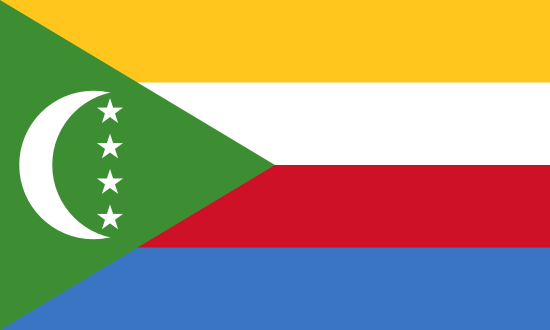
Health Insurance in Comoros, Africa
Information expatriation
Capital City: Moroni
Total area: 2,235 km2
Population: 682,000 (2007)
Money: Currency Converter
Time Zone: List of time zones by country
Calling Code: +269 XXX
Practical Information:
Health Product: Travel Insurance and Health insurance
Health Insurance information and Sanitary Risk: World Health Map
BLOG : Expat Health insurance Information
Here is a brief description of the healthcare system in the country:
· Governance and funding: The Ministry of Health oversees the system. Funding comes primarily from government budget, out-of-pocket payments, and foreign aid.
· Infrastructure: There is 1 hospital per island along with rural health centers. Facilities often lack basic equipment, supplies, clean water, and electricity.
· Workforce: Critical shortages of doctors, nurses, midwives. Ratio of 1 medical professional per 20,000 people. Many positions remain vacant.
· Services: Primary care, maternal/child health services, basic surgeries at hospitals. Limited specialty, laboratory or diagnostic capabilities.
· Referrals: Complex cases are referred to Moroni Regional Hospital or overseas (France, Reunion, Madagascar). Air ambulance not always available.
· Traditional/alternative: Herbal remedies remain widely used, especially in rural areas with little access to modern care.
· Insurance: No social health insurance. Most rely on out-of-pocket payments they can ill afford. Creates barrier to timely care.
· Challenges: Poverty, lack of trained workers, infrastructure, medicines and supplies, geographical isolation, climate events like cyclones.
Here are some key health considerations for expatriates living in the country:
· Insurance - Obtaining comprehensive international medical evacuation insurance is essential due to extremely limited local healthcare options.
· Facilities - The nearest advanced hospitals are overseas. Evacuation can be difficult/slow to arrange, so medical emergencies must be strictly avoided.
· Isolation - Living on one of the dispersed islands can mean even less access to basic services than in major towns. Have a detailed emergency plan.
· Medications - Bring necessary long-term medications as availability cannot be relied upon. Access to pharmacies is limited.
· Public health risks - Diseases like malaria and dengue fever are present. Rigorous preventative measures must be taken at all times.
· Medical capabilities - Doctors cannot handle complex cases. Plan for any needed specialists to be seen overseas during visits abroad.
· Hygiene - Basic facilities/supplies like clean water and electricity may be unavailable. Be very attentive to sanitation and hygiene practices.
· Emergencies - Evacuation could take over 24 hours to arrange by air. Have contacts/procedures mapped out well in advance for any issues.
